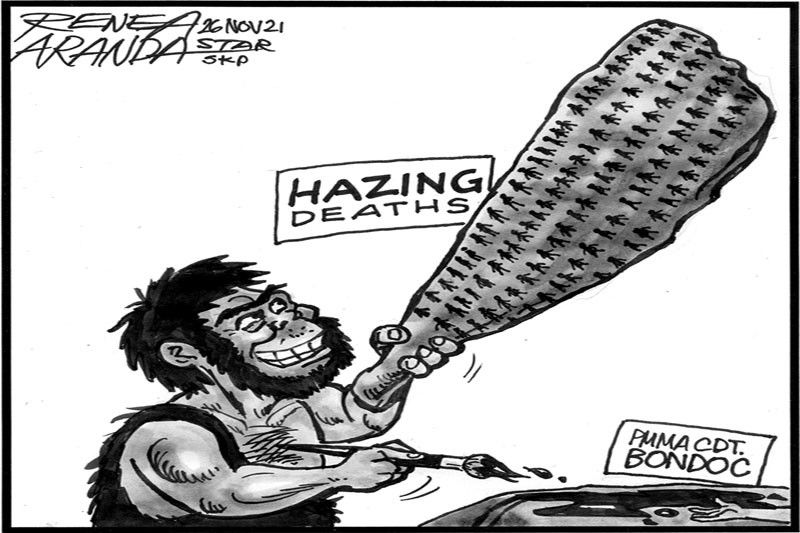EDITORIAL - No end to hazing

Two laws have been passed to put an end to deadly hazing and other forms of violent initiation rites in this country. Republic Act No. 11053, the Anti-Hazing Act of 2018, expressly prohibits hazing in fraternities, sororities and other organizations. It raised penalties and refined RA 8049, the Anti-Hazing Act of 1995, which merely regulated hazing and other forms of initiation rites.
Not surprisingly, RA 8049 failed to stop deadly hazing. In September 2017, Horacio Castillo III, a law freshman of the University of Sto. Tomas, died in hazing rites of the Aegis Juris fraternity. UST expelled eight of the students; 10 are held without bail at the Manila City Jail as the trial continues.
With weak enforcement, however, RA 11053 is apparently also ignored, even during a killer pandemic. The House of Representatives is currently reviewing new amendments in hazing laws as it looks into the death of Philippine Merchant Marine Academy Cadet 4th Class Jonash Bondoc in July this year reportedly during initiation rites at the PMMA in San Narciso, Zambales.
Cadet 3rd Class Jomel Garcia has been arrested and charged for the death, but Bondoc’s relatives say there were others who participated in beatings not only of Bondoc but also of other PMMA cadets, as shown in a blurred video. Bondoc, 20, died of head injuries. Lawmakers received reports that sleep deprivation was also used in the hazing rites.
What do aspiring merchant marines get from indulging their inner beast? Bondoc’s grieving relatives said the young man from Butuan had entered the PMMA to pursue his dream of becoming a world-class sailor. He won’t be the last youth to see his dreams dashed for good, unless authorities improve the enforcement of laws to put an end to hazing rites.
- Latest
- Trending
























